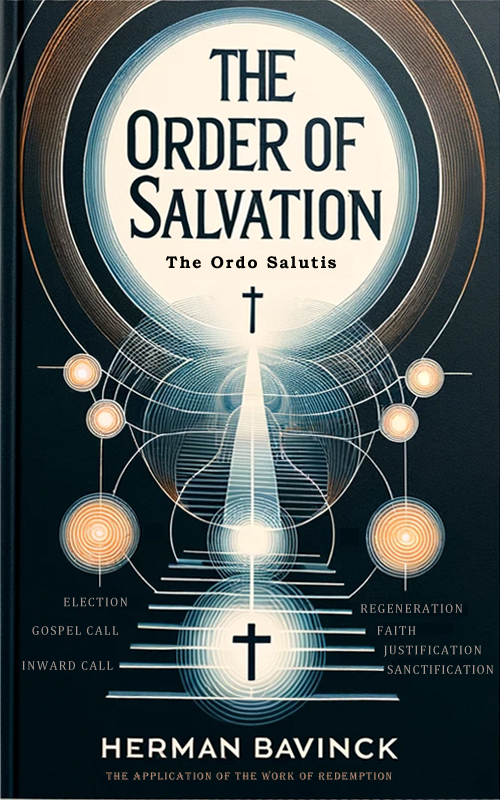 by Herman Bavinck
by Herman Bavinck
in ePub, .mobi & .pdf formats
"The Order of Salvation" by Herman Bavinck is a theological work exploring the Christian concept of salvation. Bavinck examines the universal human pursuit of salvation, contrasting Christian grace-based salvation with other religious and philosophical autosoteric perspectives. He considers the biblical view of grace, emphasizing salvation as a gift from God rather than a human achievement. The book navigates through historical theological developments, scrutinizing various interpretations and misunderstandings of salvation, including Pelagianism and semi-Pelagianism. Bavinck underscores the Trinitarian nature of salvation, highlighting the indispensable roles of the Father, Son, and Holy Spirit in the divine plan of redemption. The work offers a rich, nuanced exploration of the Christian doctrine of salvation, emphasizing grace, faith, and the transformative work of the Holy Spirit.
Bavinck's exposition on the ordo salutis (order of salvation) in Reformed theology provides a distinct perspective that contrasts with other theological traditions, particularly the Lutheran approach. Central to his discourse is the understanding that the benefits of salvation, while experienced by believers in time, are fundamentally rooted in God's eternal decree, particularly in election and the covenant of grace. Bavinck emphasizes that the benefits of salvation such as justification, sanctification, and glorification, are not mere sequential steps but are intrinsically connected to our union with Christ and imparted by the Holy Spirit.
In Reformed thought, as presented by Bavinck, the order of salvation begins with the eternal covenant made between the Father and the Son (the pactum salutis). This covenant is the foundation upon which all the benefits of salvation are secured and applied. Bavinck underscores the Trinitarian nature of salvation, wherein each Person of the Trinity has a distinct role, yet their works are inseparable. The Father elects, the Son accomplishes redemption, and the Holy Spirit applies the work of Christ to the believer.
Key elements in the order of salvation include calling (both external and internal), regeneration, faith, justification, sanctification, and glorification. Calling, according to Bavinck, holds a primary position as it is through the proclamation of the Gospel that individuals are invited to faith and repentance. Regeneration, which is the work of the Holy Spirit, is necessary for one to enter the kingdom of God and is closely followed by conversion and faith. Justification is seen as an act of God's free grace whereby sinners are declared righteous in His sight, through faith in Christ. Sanctification involves the progressive work of the Holy Spirit in making the believer more Christ-like in character and behavior. Finally, glorification refers to the completion of salvation in the life of the believer, where they will be made perfect and sinless in the presence of God.
Bavinck's approach underlines that salvation is an entirely divine initiative, a monergistic work of God where human effort or merit plays no part in the procurement of salvation. Instead, it's entirely the result of God's grace, manifesting in the believer's life through the work of the Holy Spirit, thus ensuring that all glory and honor belong to God alone.
Translated and Edited by Olivia Jansen
-----
Table of Contents
Introduction
The Universal Quest for Salvation
The Bible's View of Salvation: Grace
Old Testament Nomism
Consolation of God's Reign: The New Testament
The Outpouring of the Holy Spirit
Salvation, the Spirit's Gift
Pelagius and Augustine
Luther and the Reformation
The Ordo Salutis in Reformed Theology
The Ordo Salutis in Mysticism and Rationalism
Pietism and Methodism
Subjectivism
After Kant
Schleiermacher and Ritschl
Psychology
Basic Options and Errors
Trinitarian Salvation
Grace
Truth and Religious Experience
